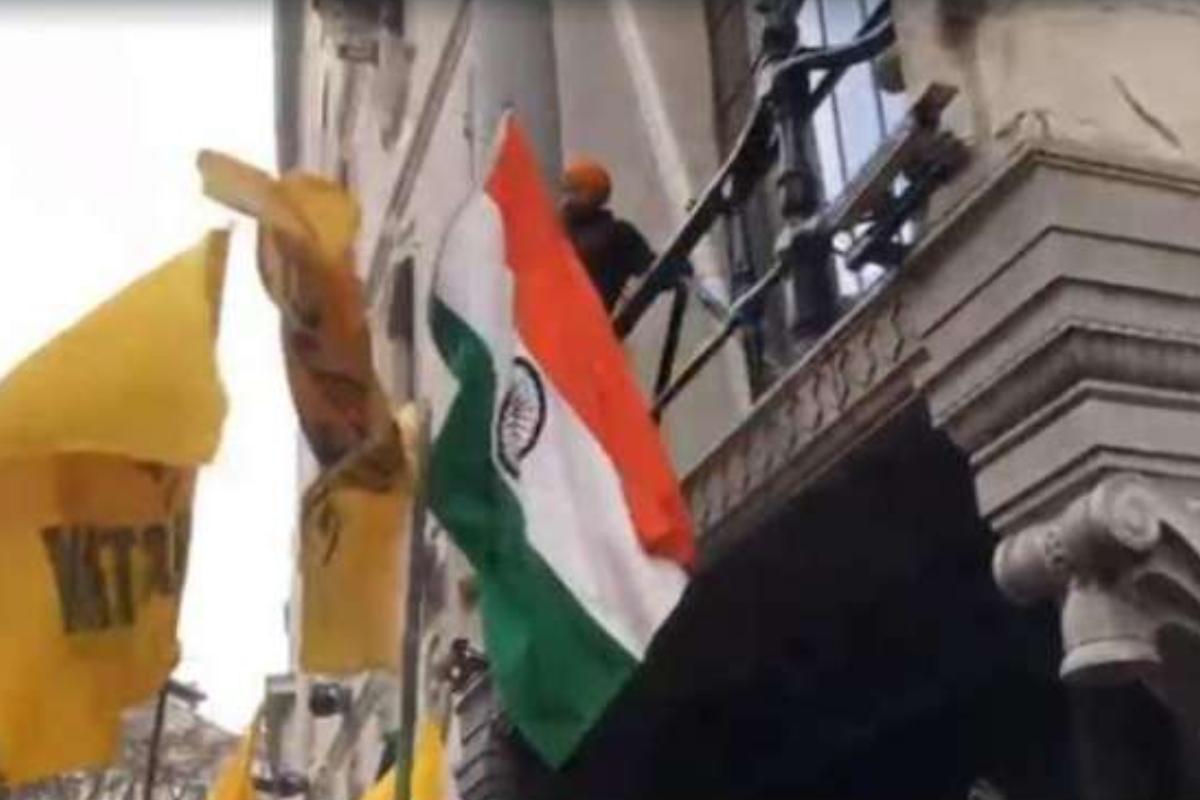Ravindra Mhatre. Sadly, the large majority of Indians would probably not remember that name. Most of them were not born when Mhatre was killed almost 40 years ago.
He was India’s assistant commissioner in the UK. On the February day when he was abducted by terrorists connected with azadi for Kashmir, he was in charge of the consulate in Birmingham. He had been buying a cake for his daughter Asha’s birthday. He was killed three days later.
As head of that diplomatic office that day, Mhatre represented the President of India. His security was the responsibility of the UK government. But Britain not only failed to protect his life, but it also refused to extradite the alleged organisers among the leaders of that movement who were based in the UK.
Root cause
That is not surprising. It was Britain that created the ‘Kashmir issue’, and turned India’s simple request in 1948 that the UN instruct Pakistan to withdraw its personnel from Jammu and Kashmir into a ‘dispute’ that the UN would arbitrate.
The UK has periodically promoted Kashmiri and Khalistani separatists since then and continues to do so. That the Indian flag was replaced on Monday by a purported ‘Khalistani’ flag at India’s embassy in London is part of that pattern.
I don’t see why the Indian mission functions from a street in London where it is so easily attacked.
A former advisor in the prime minister’s office once mentioned that whenever India’s prime minister arrived in London for talks, and a sticky matter was on the agenda, a noisy azadi demonstration would pop up near the hotel or his route. It seemed calculated to put the Indian team under pressure, he added.
Canada has been an even more fertile hotbed for Khalistani activism. Might that indicate that the intelligence agencies of those countries are incompetent? Or, might it indicate something other than incompetence?
Dereliction abroad and at home
It would certainly seem that India’s purported intelligence agencies are less sharply honed than some of us would hope. Events in Kashmir, including the continued killing of Pandits there, are cause for severe disappointment.
Just three-and-a-half years after momentous constitutional changes with regard to Jammu and Kashmir, a new round of terrorist violence appears to be rearing its ugly head – just where the last round did a decade ago, in south Kashmir.
A few hours after Burhan Wani was assassinated on July 8, 2016, I had written that all those involved in security should either be sacked or tried for treason. But, of course, in the corridors of shadowy power, no one is ever held accountable – or given deadlines.
Around five years ago, I wrote an article about the then UK acting high commissioner taking a sound-proof closed van to Kashmir, and driving people around in it. Nobody took notice.
And I am told that, when the then governor of the state wrote to the top bosses of the security establishment about that diplomat’s frequent visits to Srinagar, his letters were not even acknowledged.
Take action
It is time for the political authorities to step in and take prompt and firm action. This must stop. The first thing to do is to stop the sort of access and open the field for the interference of the sort I have referred to above.
After strict instructions have been given on that front, in terms that will ensure compliance within the security establishment at home, those in charge need to turn their attention to the offending countries.
On that front, knee-jerk responses such as removing barricades outside the UK high commission and the high commissioner’s residence in New Delhi are only good for media noise.
They will make no difference whatsoever to the concerned countries. They all have submerged steel columns in front of their gates, which could stop tanks – not to speak of crack troops posted within those gates.
One line of action could be that the lease be cancelled on the vast Lutyens bungalow and park, which Britain designated as the residence of the UK high commissioner at the time of India’s independence. It sits across the road from India’s Army Headquarters and is the largest and best located of the bungalows in the area where ministers and other top constitutional functionaries live.
The lease of the sprawling property in Chanakyapuri, where the UK high commission is located, could also be cancelled. It is prime property and large enough for a top university in the heart of the capital. Indeed, it is a mini-township.
The Canadian High Commission could also be asked to move. Its thorough incompetence in dealing with Indian visa seekers last summer shows that it doesn’t deserve such vast space.
I believe there is ample land in Najafgarh – and the British Council building on Kasturba Gandhi Marg is surely large enough for the embassy of a smallish country.
India should also give notice of its intention to withdraw from the so-called Commonwealth of Nations unless President Murmu is made its head. After all, surely the largest partner economy should head a primarily economic and trading association.
The bottom line is that there’s no point in talking big about real independence having come with the ascendance of the current government if it fails to show the spirit required to take effective steps to actually put a stop to provocative interference.
David Devadas is a journalist and security, politics and geopolitics analyst.
Disclaimer: Views expressed above are the author’s own










